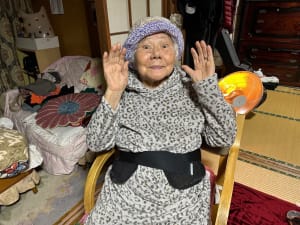
Introduction Okinawa is not simply a place where people live long lives—it’s a place where they live well into old age. The island’s population boasts the highest life expectancy in Japan—and among the highest in the world—with many residents surpassing 90 and even reaching 100 while maintaining good physical and mental health. This isn’t due to luck or superior genetics alone. Rather, it’s the result of lifelong practices that promote health, vitality, and balance. Extraordinary Longevity Okinawan women live to an average age of about 90—years beyond their Western counterparts. Even more astounding is the island's rate of centenarians: around 68 per 100,000 people. That’s more than three times higher than in the United States. But what’s more impressive than the numbers is how Okinawans age. Many are still walking, gardening, dancing, and contributing to their families and communities well into their 90s. Personal Story: A Living Example In Okinawa, long life isn’t just a biological gift—it’s a way of life, woven into daily rhythms and relationships. My wife’s mother is a living testament to this tradition. At 93 years old, she has already surpassed the Okinawan average life expectancy for women, and she continues to thrive. She still lives independently in the same home she’s cherished for the past 65 years. Her mind is crystal clear, her memory flawless, and her personality remains just as witty and fun as ever. Twice a week, she visits the local senior center for social time—though her biggest complaint is that her fellow seniors “don’t talk enough.” To stay connected, she and my wife speak on the phone every single day, joyfully trading updates and gossip from both sides of the globe. This daily connection, this habit of sharing life—even across oceans—sustains her spirit and keeps her world full of meaning. She also finds inspiration in her older sister, who at 95 is equally sharp, lively, and independent. Together, they remind us that aging well in Okinawa means more than just living longer—it means living fully, with humor, purpose, and deep human connection. Low Rates of Chronic Disease Despite their advanced age, Okinawans have impressively low incidences of age-related illnesses: Cardiovascular disease and stroke are rare Breast and prostate cancers occur far less frequently Type 2 diabetes is uncommon Much of this is thanks to lifestyle: nutritious food, daily movement, and powerful emotional connections all work together to reduce inflammation, regulate blood sugar, and keep stress levels low. Misunderstood in the West: The HDL Story When my Okinawan wife moved to the United States, her doctor told her she had "high cholesterol." But a closer look revealed that her HDL—the “good cholesterol”—was off the charts. In Okinawa, this is common. High HDL levels protect the heart, even if total cholesterol appears elevated on standard U.S. tests. This simple misunderstanding highlights how Okinawan health metrics can be misread when removed from their context. Takeaway Okinawan longevity is not a miracle—it’s a system. A natural, intentional way of life rooted in tradition and reinforced daily through habits, relationships, and outlook. You don’t need to live in Okinawa to benefit from these practices. You can start today. Are you ready to explore the Okinawan secrets to living well? Join our Blue Zone Fitness & Wellness classes to learn more! The Blue Zone Blog Series will be posted weekly. Stay tuned for Part 3, where we will explore how one simple habit—hara hachi bu, or eating until you’re 80% full—contributes to Okinawan vitality.

